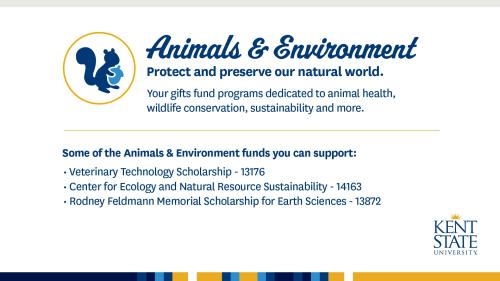
The Earth Sciences are fields of study that are concerned with both solid and fluid Earth materials and processes.
The Department of Earth Sciences at Kent State University is committed to the integration of teaching, the advancement of knowledge, and public service, in an inclusive and accessible environment.
Explore Degrees and Careers in Geology/Earth Sciences
The Department of Earth Sciences offers a comprehensive course of study leading to B.A., B.S., M.S., and Ph.D. degrees. Our degree programs allow for great flexibility and a personalized course of study.
Bachelor of Science in Geology
BACHELOR OF SCIENCE ENVIRONMENTAL GEOLOGY CONCENTRATION









